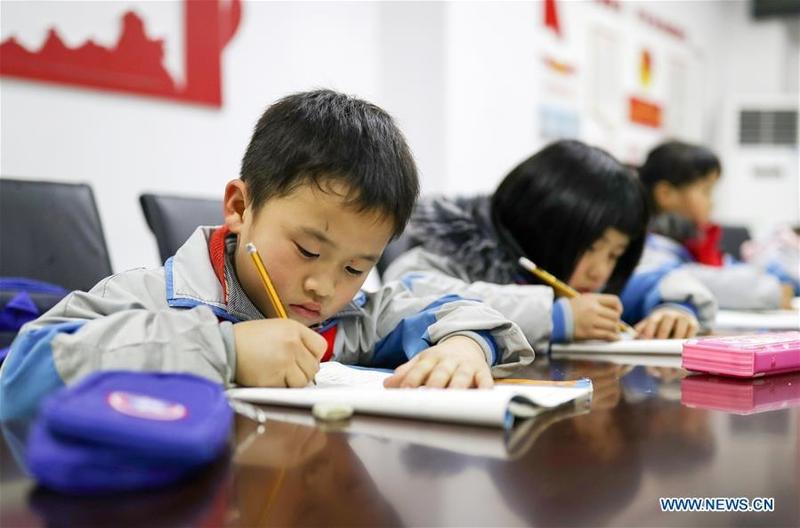 Primary students do homework at an after-school care center in Yuping Dong autonomous county in Southwest China's Guizhou province, on Feb 27, 2019. (PHOTO / XINHUA)
Primary students do homework at an after-school care center in Yuping Dong autonomous county in Southwest China's Guizhou province, on Feb 27, 2019. (PHOTO / XINHUA)
China's tighter scrutiny of the US$120 billion after-school tutoring sector will lead to a healthy and regulated development of the sector in the long term, despite capital and stock price slumps in the short term, experts said.
The Ministry of Education said on Tuesday that it is setting up a department to supervise and regulate the after-school education and tutoring sector covering students from kindergarten to high school.
The new department will formulate relevant standards and systems for after-school education and training, including the setting up of online and offline institutions and also deal with aspects like training content, class duration, formulating the required qualifications and rules.
"The establishment of the supervisory department clearly conveys the authorities' determination to resolve the supervisory difficulties for after-school education and training institutions," said Xiong Bingqi, director of the 21st Century Education Research Institute in Beijing.
The establishment of the supervisory department clearly conveys the authorities' determination to resolve the supervisory difficulties for after-school education and training institutions.
Xiong Bingqi, director of the 21st Century Education Research Institute in Beijing
"The supervision, however, does not intend to restrict or even prohibit the development of private education and after-school tutoring. In fact, it is intended to guide social capital to invest in the sector in a more standardized way," Xiong said.
Since the beginning of this year, authorities have been tightening scrutiny of the sector. Last month, China's top leadership called for easing the burden on primary and middle school students, as well as comprehensive regulation of private tutoring institutions.
Beijing's municipal administration for market regulation imposed fines amounting to 500,000 yuan (US$76,000) each on online education companies like GSX Techedu, Xueersi Online School, Koolearn and Gaosi for misleading customers with false advertising.
As a consequence, investment in the nation's K-12, or kindergarten to 12th grade, tutoring sector dropped sharply from January to April. In May, the sector saw zero investment, according to education media company JMD Education.
ALSO READ: 15 tutoring firms fined US$5.7m for false adverts, pricing frauds
Compared with the beginning of the year, the overall market value of education concept stocks has fallen by nearly US$100 billion. Share prices of leading education company New Oriental Education and Technology Group fell from a high of US$19.97 per share in February to US$9.54 per share by Wednesday. Gaotu, a technology-driven education company and leading online K-12 large-class after-school tutoring service provider in China, saw its share price fall from US$149.05 per share in January to US$15.65 per share on Wednesday.
"The regulations are aimed at ensuring that the entire market develops in a more rational manner. Some institutions with poor qualifications will be forced out," said Shi Bin, head of China Equities at UBS Asset Management.
"However, we should note that the demand is still there. Leading educational institutions will still benefit from enhanced supervision. From a long-term perspective, share prices of education-related companies are expected to perform well," he said.
READ MORE: Virtual education growing opportunity for foreign companies
Contact the writer at chengyu@chinadaily.com.cn


